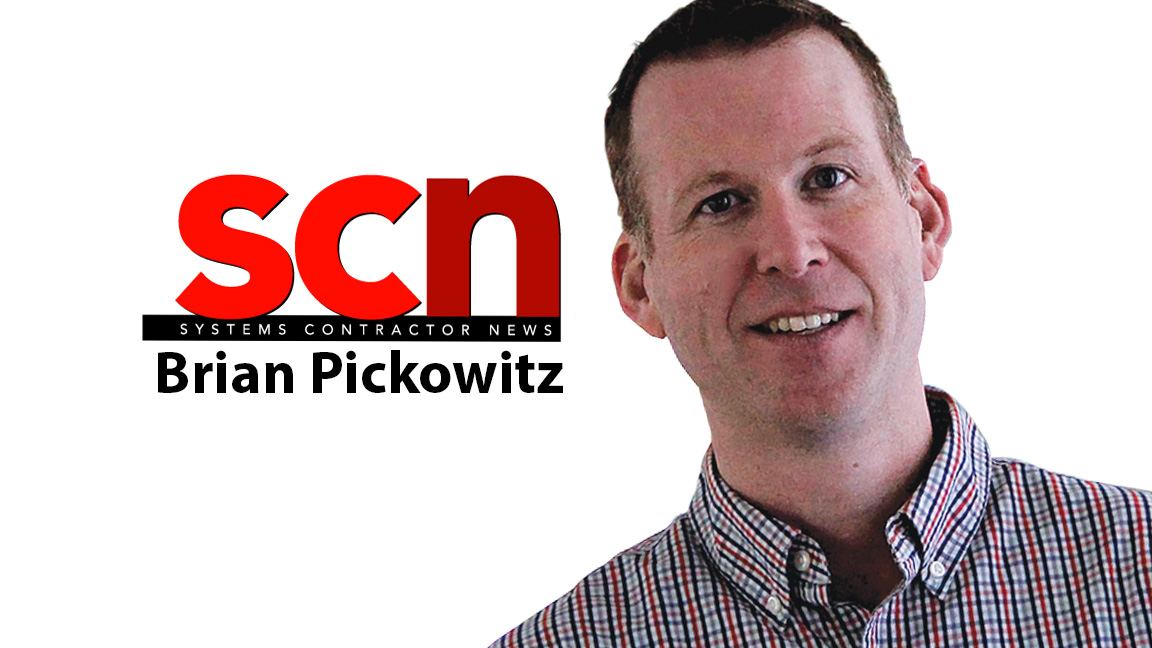Viewpoint: With Systems and Sustainability, Mutual Gains are Possible
Adopting smart sustainability policies allows integrators to differentiate themselves in today’s market.

Sustainability will soon become a critical factor in buying decisions, and a critical issue that no one in the AV industry can ignore. Yet for real change to happen in this area, there needs to be buy-in from all sides. That’s why I believe that for sustainable practices in the AV industry to make any real impact, we need action from the entire channel—manufacturers, integrators, partners, and end users.
I watched this trend develop firsthand in Europe; integrators came to us asking about the complex nature of sustainable indicators within AV products, as they faced stricter protocols and pressure to demonstrate energy efficiency. For integrators in the commercial building space, which is under pressure from governments to limit their environmental impact, sustainability has become a high priority. All issues surrounding sustainable practices are gaining momentum, and in the not-so-distant future, manufacturers and integrators alike will both win and lose business based on their sustainability protocols.
[Blueprint for Success: The Creative Lens]
It is now more important than ever for systems integrators to know what to look for when choosing who to partner with and what products to specify. Integrators must align themselves with companies that emphasize a commitment to a green future. This will not only impact their overall standing with clients, but also their business opportunities and the bottom line.
Energy Efficiency
When considering an AV product and determining its sustainability indicators, one of the most important things to consider is energy efficiency. Energy efficiency can be designed into any AV hardware component, including audio amplifiers. This not only has a positive, resource-protecting impact, but it has a financial upside as well. At the very least, energy efficiency reduces the overall cost of ownership for the customer. Month after month, year after year, even a modest reduction in energy consumption can add up to meaningful savings.
At the very least, energy efficiency reduces the overall cost of ownership for the customer.
Additionally, energy use translates to released heat. Integrators and end users alike need to seek out AV components that generate a minimal amount of energy dissipated as heat. As anyone who steps into a server room of nearly any size knows, heat becomes a real issue that wastes energy, requires additional power for cooling, and shortens the life expectancy and performance of components. Fortunately, many of today’s state-of-the-art components feature a level of energy efficiency and smart energy management technologies far beyond the component designs of yesteryear.
For components that are powered 24/7, how can energy efficiency be achieved? A couple rather simple but ingenious ways to reduce energy consumption and heat generation is by specifying components that feature smart energy management. Consider the advantages of an amplifier or component that draws a minimal amount of power when idle and can automatically switch itself into a standby mode when there is no signal being sent to it at all. These features may seem small, but in the long term, they add up to a big, positive impact on reducing energy usage.
A daily selection of the top stories for AV integrators, resellers and consultants. Sign up below.
[Streamlined Conferencing for Sustainable Lithium Battery Company]
Another important sustainability issue is that as a baseline, integrators should seek out products that are RoHS (Restriction of Hazardous Substances) certified compliant. RoHS legislation originated in Europe and restricts the use of hazardous materials in electrical and electronic products. While there is no U.S. federal mandate on RoHS compliance, several states now require RoHS manufacturing processes. These key elements—energy efficiency and RoHS compliance—should now be, and soon will be, key determinant factors for both integrators and end users when deciding on their manufacturer of choice.
The merging of the IT and AV industries have strengthened our abilities to apply sustainable practices within the industry. In using cloud platforms and AWS services, manufacturers can provide integrators and end users with remote monitoring services.
Remote monitoring services help in two distinctive ways. First, by remotely monitoring, diagnosing, and addressing issues in components as they occur, we can prolong the life of a product and reduce the risk of replacing the component or system. Second, remote monitoring eliminates the need for unnecessary, fuel-consuming service calls. Instead of rolling a truck to solve minor issues, they can be resolved remotely in an energy efficient way. And if a technician is required on site, they can arrive fully informed with the appropriate tools or parts required.
A Green Lifecycle
With the above said, the burden of maintaining a product’s sustainability through its entire lifecycle should not fall on the integrator or the end user, but instead on the manufacturer. Manufacturers must strive to work from environmentally-friendly, LEED compliant facilities. LEED compliance requires the use of recycled and sustainable materials, and the incorporation of safe, non-toxic materials—such as glues, paints, and carpets—with a building. LEED certification is good for resources, employees, and the environment.
[Viewpoint: Customer Service Can Make or Break Your Business]
Manufacturers also have a responsibility to vet and ensure that any supplier they partner with mirrors their green ethos. Regular sustainability partner audits must be in place to ensure that the environmental impact of their entire manufacturing process is minimal.
Even the product’s packaging and shipping materials come into play. All products today should ship in packaging comprised of highly sustainable materials that are easy to recycle and not burdensome on the receiver. And these sustainable practices don’t stop when the product is out of the manufacture’s sight. At the end of the product’s life, the manufacturer should have a process in place to ensure the AV components can be returned and recycled or disposed of properly, in the most environmentally friendly way.
[SCN Top 50 Systems Integrators 2021]
As integrators move forward, these sustainability considerations need be on their minds as they evaluate and add new manufacturers to their portfolio. Adopting smart sustainability policies allows integrators to differentiate themselves in today’s market—and helps them establish long-term best practices as the industry moves ever more toward environmental requirements.
The entire lifecycle of an AV component, from its components to its performance to its end of life, can and should be a sustainable process. Sustainability-minded integrators can differentiate themselves from their competition in very real and meaningful ways, helping bring more opportunities and customers to their doorstep.
Brian Pickowitz is the vice president of marketing for LEA Professional.

